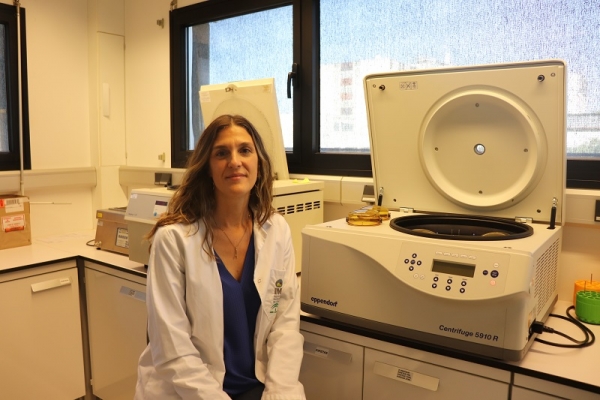Cytomegalovirus (CMV) is one of the most prevalent herpesviruses worldwide. Depending on the geographical area, it can affect between 40% and 90% of the population and, although it does not produce symptoms in healthy people, the control of this chronic infection requires constant work by the immune system, which is constantly fighting to keep it at bay. A study by the University of Cordoba (UCO) and Cordoba’s Maimonides Biomedical Research Institute (IMIBIC) evaluated the effect of SARS-CoV-2 coronavirus infection in patients who had mild or asymptomatic COVID-19, and who were also infected with cytomegalovirus. According to the results of this study, people coinfected with both pathogens present the premature aging of their immune systems, which is related to a greater risk of suffering cardiovascular disease at an earlier age.
As the principal investigator on the study, Dr. Alejandra Pera, explains, this does not mean that people who have been infected with these two viruses will necessarily develop cardiovascular problems. However, given the prevalence of both viruses, it does represent one more circumstance "that should be taken into account in the patient's clinical history" and added to the list of other risk factors, such as alcohol and tobacco consumption, the regular intake of foods high in saturated fats, and a sedentary lifestyle.
T-cells, in the right measure
The study analyzed the state of the immune systems of people with and without chronic cytomegalovirus infection 3 and 12 months after mild or asymptomatic infection by SARS-CoV-2 (the coronavirus responsible for COVID-19). According to the results, in patients infected by both viruses, an expansion of T-cells with increased functionality is generated. These T cells are memory-endowed lymphocytes that are essential for our body's defense, but when their functions are excessively activated, they generate inflammation and can damage the vascular endothelium, a layer of cells that lines the inside of blood vessels. "Cytomegalovirus alone causes these cells to increase. Now we have found that SARS-CoV-2 has an added effect," the researcher adds.
One of the most striking aspects of the study is that this effect was documented in people who were infected with even mild or asymptomatic forms of the coronavirus. The scientific community is studying the effects to a greater extent in patients with severe symptoms, "but we are seeing that COVID-19 also has medium- and long-term consequences in people who had the disease without complications, and that we should take this into account", emphasized the study's lead author.
Vaccines as prevention
The study, whose first author is UCO predoctoral researcher Pablo Álvarez, showed that after infection with SARS-CoV-2 there is an increase in cells associated with cardiovascular disease in patients previously infected with cytomegalovirus. In those individuals who became ill with COVID after having been vaccinated, however, this phenomenon does not occur.
Although Dr. Pera stressed that further studies should be conducted to take into account the effect of the different waves and variants of the coronavirus, the results seem to indicate that the vaccines prevent and mitigate this uncontrolled expansion of T cells capable of doing cardiovascular damage.
Reference:
Accelerated T-Cell Immunosenescence in Cytomegalovirus-Seropositive Individuals After Severe Acute Respiratory Syndrome Coronavirus 2 Infection. Pablo Álvarez-Heredia, Irene Reina-Alfonso, Jose Joaquín Domínguez-del-Castillo, Carmen Gutiérrez-González, Fakhri Hassouneh, Alexander Batista-Duharte, Ana-Belén Pérez, Raquel Tarazona, Rafael Solana, Alejandra Pera. The Journal of Infectious Diseases, jiad119, https://doi.org/10.1093/infdis/jiad119


